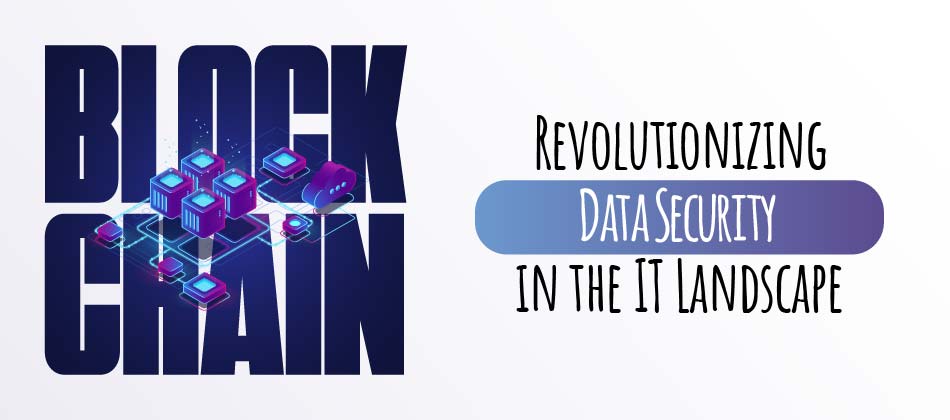Table of Contents
ToggleIntroduction
In today’s digital age, data security has become a critical concern for businesses and individuals alike. With cyber threats on the rise, traditional centralized systems are no longer sufficient to protect sensitive information. Enter blockchain technology, a revolutionary concept that has the potential to transform data security in the IT landscape. In this blog, we will explore how blockchain works, its impact on data security, and its potential to revolutionize various industries.
Understanding Blockchain: The Technology Behind Decentralized Security
Blockchain is a decentralized and distributed ledger technology that records transactions across multiple computers, creating a chain of blocks that are immutable and transparent. It operates on a peer-to-peer network, where each participant (node) has a copy of the entire blockchain. This decentralized structure eliminates the need for a central authority, making it highly secure and resistant to tampering.
Key Features of Blockchain:
Decentralization: Unlike traditional centralized systems, blockchain operates on a decentralized network, where no single entity has control over the data. This ensures that no single point of failure exists, making it highly resilient to cyber attacks.
Immutability: Once a transaction is recorded on the blockchain, it becomes virtually impossible to alter or delete. Each block contains a unique cryptographic hash that links it to the previous block, creating a chain that preserves the integrity of the data.
Transparency: All participants in the blockchain network can view and verify transactions. This transparency promotes trust and accountability, as every transaction is recorded and visible to all network participants.
Impact on Data Security: Ensuring Trust and Integrity
Blockchain technology has significant implications for data security:
Secure Transactions: Blockchain ensures secure and tamper-proof transactions by utilizing cryptographic algorithms. Each transaction is verified by network participants through a consensus mechanism, such as proof-of-work or proof-of-stake, which adds an additional layer of security.
Data Integrity: Once data is recorded on the blockchain, it cannot be altered or tampered with without the consensus of the entire network. This feature ensures data integrity, making blockchain an ideal solution for storing critical information like financial records, medical data, and supply chain information.
Enhanced Privacy: Blockchain provides an opportunity to enhance privacy by giving users control over their data. Users can choose to share specific data attributes while keeping the rest encrypted, ensuring that sensitive information remains secure.
Blockchain in Various Industries: Beyond Cryptocurrency
While blockchain gained prominence with the rise of cryptocurrencies like Bitcoin, its potential extends far beyond the financial sector:
Supply Chain Management: Blockchain enables end-to-end visibility and transparency in supply chains, preventing fraud, counterfeiting, and ensuring the authenticity of products.
Healthcare: Blockchain can secure and streamline the sharing of medical records, enabling seamless access to patient information while maintaining privacy and data integrity.
Voting Systems: Blockchain has the potential to revolutionize voting systems, ensuring transparency, tamper-proof records, and preventing voter fraud.
Intellectual Property: Blockchain can facilitate the authentication and protection of intellectual property rights by creating an immutable record of ownership and usage.
Conclusion
Blockchain technology has emerged as a game-changer in the field of data security. Its decentralized nature, immutability, and transparency make it a powerful tool for securing transactions, ensuring data integrity, and promoting trust in various industries. As the technology continues to evolve, we can expect to see widespread adoption of blockchain solutions, transforming the IT landscape and safeguarding sensitive information in a highly secure and decentralized manner.



